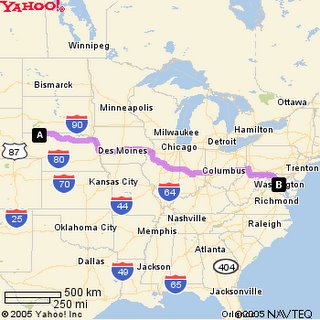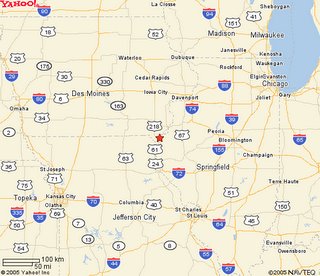
I am native of the Northern Virginia suburbs of Washington, DC, but none of my ancestors have roots there. My father was born and raised in Gordon, a small town in northwestern Nebraska. He was the first person in his family to graduate from college. The following will explain why my Dad was born in Nebraska.
My dad’s ancestors
Granddad Bill
My father’s father William David (“Bill”) was born in Crawford, Nebraska on October 24, 1893. Bill moved with his family to Dunlap, Iowa and to Irwin and Leat, Nebraska before he married. He was employed at the Bert Hull Ranch, north of Gordon in his earlier years and loved to play baseball on the team when he worked at the Hull Ranch. He hired on as a Section Laborer with the Chicago and Northwestern Railroad in March 1915, out of Eli, Nebraska. In January 1916 he came to Gordon as a Section Foreman; he continued as Section Foreman for 30 years, until he was appointed Roadmaster for Section One out of Valentine, Nebraska (a post he held for five years until his retirement in 1951 at age 58).
Bill’s ancestry
Bill was descended from another William who came to Massachusetts on the ship “Defense” from England in 1635. Like me and many of my ancestors, this William undertook a major Odyssey relatively late in life. He was 48 years old when he made the arduous crossing of the Atlantic with his wife Mabel and children, aged six, five and two. I am descended from Ralph, the five-year old.
Four generations later, one of Ralph’s descendants, Supply, would fight in the Revolutionary War.
Pioneers of the New World
The reason that my Dad was born in Nebraska instead of Massachusetts has to do with a new religion that took hold in New England in the early part of the 19th century.
Mormon founder
One of Supply’s sons, John would become one of the earliest associates of Joseph Smith, who lead the Mormons out of New England to begin their great migration across the plains. The church was organized on April 6, 1830, and John was baptized into the faith the following September 12, one month shy of his 47th birthday. This made him one of the oldest followers of Joseph Smith. Once again, we find one of my ancestors who undertook a major new path at a time in life when most men are settling down to enjoy the fruits of their lifelong labors.

But John would never make it to Salt Lake City. Apparently he left Nauvoo with the main group of Mormons in 1846 but he did not make it to Utah, stopping in Iowa. As the Mormons moved west across Iowa, they established several semi-permanent settlements where they built cabins and planted crops. These stations provided rest and provisions for wagon trains that followed during the next few years. It was at one of these communities, Long Point, Bonaparte, Van Buren Co., Iowa that John died at age 65. This town is across the Mississippi River from Nauvoo, Illinois, where the Mormons fled during the religious uprisings that chased them from town to town across the West. His wife Rebecca died four months later in Pottawattamie County, across the Missouri River from the main Mormon camp, Winter Quarters, near Omaha, Nebraska.
Two generations of farmers
One of John’s sons was another Bill, named William Willard. He founded a little town in Iowa called Manteno. One of William Willard’s sons was George Riley, who had eleven children, one of whom was my granddad Bill.
The Irish grandmother I never knew
My father’s mother was Mae Mary. Her grandparents came from Ireland in the mid-1800s. The O’Rourks first settled in Wisconsin and then moved west to Nebraska.
My dad
His family
Granddad Bill was handsome as a young man, with steely blue eyes and a stance that proclaimed his toughness in an era of tough guys. Bill married Mae Mary on November 3, 1912 at the age of 19. My dad was born seven and a half months later, on June 14, 1913. Dad’s brother Tom was born on February 12, 1917. Mae Mary would die at home during childbirth in September 1931, when my dad was eighteen years old, a senior in high school.
My dad
My father, Emery Arnold (we share the same name) was known as a champion baseball and football player. He earned the nickname “Cy” for his baseball skills. In those days football players wore only leather helmets and almost no padding. They played on both offense and defense. Dad played center, and was known to throw his helmet off and play without one to impress a girl. He was a handsome young lad, with curly hair, cool blue eyes and a tall, muscular physique.
Dad graduated in 1935 from Nebraska State College in nearby Chadron four years later with an A.B. degree. Following graduation, he traveled to Washington, DC to put himself through law school and find work. My dad wanted more than anything to escape the lifestyle of the small town in which he was raised. I also suspect that the sudden death of his mother left him with a painful memory that he wanted to leave behind in the sandhills of the Great Plains.
My mom
My mother, Mildred Lucille, was also raised in a small town. Hers was Plant City, in central Florida. Millie came from a long line of college-educated women, including her grandmother. She also came to DC following college graduation to find work. Both of my parents wanted to escape from the small town lives in which they had been raised. This was the time of the Great Depression, and young people flocked from small towns all across the country to find work and begin new lives in the growing economy of Washington, DC.
Mom’s ancestry
Reuben Philips, Pioneer, Teacher, Preacher and Musician
My mother’s mother was Ruth Phillips, and Ruth’s great-grandfather was Reuben Philips. Reuben was born in 1795 in the frontier of western North Carolina, near Asheville. He came from a line of Methodist, Baptist and Presbyterian preachers. In those days the people of the small frontier towns had to create their own social institutions. If they wanted to educate their children, they had to find a person who could read and write, and they had to construct a building, or devote someone’s house or a church building to the purpose. Reuben Philips’ autobiography has been passed down in my mother’s family. I have held the original manuscript in my hands, and it is now in the possession of my mother’s sister, Edna Ruth Shaw. My mother’s attic contained a typewritten transcript of Reuben’s autobiography, from which I have learned much about his life.
Bringing culture to the mountains
Reuben’s father taught him how to read and write, using the Dikes Universal Spelling Book, the New Testament and the Shorter Catechism. As a young teenager, Reuben felt a calling to teach. His family was too poor to send him to school, but at age 14 he worked for a teacher in exchange for lessons in writing and arithmetic. The very next year Reuben taught his first school near the Swannanoa River, consisting of 22 students. He describes himself at age fifteen as weighing “precisely sixty pounds.” He made fifty cents per month, two-thirds of it in trade. By the time he was 20 years old, Reuben had begun to learn music from an itinerant music teacher. He caught on quickly and began teaching singing schools in addition to teaching reading, writing and arithmetic. In those days musical notation was written in what is today called “shaped note” style. By age 22, he had begun to give his young students “moral lectures,” as he calls them, and by 23, he felt the need for religion tugging at his heart. In August of 1825, at 30 years old, Reuben finally received his license to preach, or “license to Exhort,” as he puts it. During his lifetime, he traveled throughout western North Carolina, Alabama, eastern Tennessee and Georgia, teaching his singing schools, educating the children of frontier families and spreading the Gospel.
My roots are far away
The Great Depression was at its height when my parents graduated from college in the late 1930s. Like so many young people of that time, their only hope for a future was to move to the city. Washington, DC was one of the few cities that offered an opportunity for smart young people. My dad came 1,500 miles to Washington, DC, and my mom moved 900. Because my parents moved so far away from their homes, I grew up without much regular contact with cousins, grandparents or aunts and uncles. It has only been in my adult life that I have come to know about my ancestry and become acquainted with many of my relatives scattered across the continent.

2 comments:
I enjoyed reading about the Gordon and Eli, Nebraska connections. My mother was born in Gordon and taught school in Eli before she was married. Eli is almost a ghost town now. I think one family lives in the "town". The railroad is gone and the old train bed has become "The Cowboy Trail", a bike and walking path that goes for miles and miles.
Glad you enjoyed my narrative about my dad's hometown. I spent the summers of my 13th and 14th years (1959-60) in Gordon with my granddad. Having been raised in the suburbs of Washington, DC, it was quite an exotic experience for me.
My uncle Frank O'Rourke wrote several books about the life of cowboys and founded the "Tri-State Old Time Cowboy Museum" in Gordon. (http://www.westnebraska.com/Area_Attractions/Sheridan/CowboyMus.htm)
The O'Rourkes came over from Ireland in the mid-1800s and initially settled in Sheboygan Falls, Wisconsin. The next generation homesteaded in Gordon. I developed a strong respect for those hardy people who made their houses out of sod and survived the harsh Nebraska winters.
Many of my O'Rourke relatives still live in the west. In 2003 I attended a family reunion on a family ranch outside of Chadron.
I also enjoyed reading your observations about Hopkinsville, KY. Good work!
Post a Comment